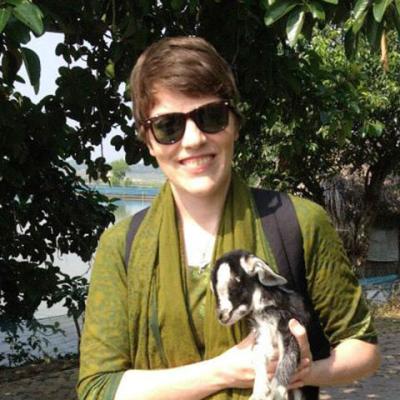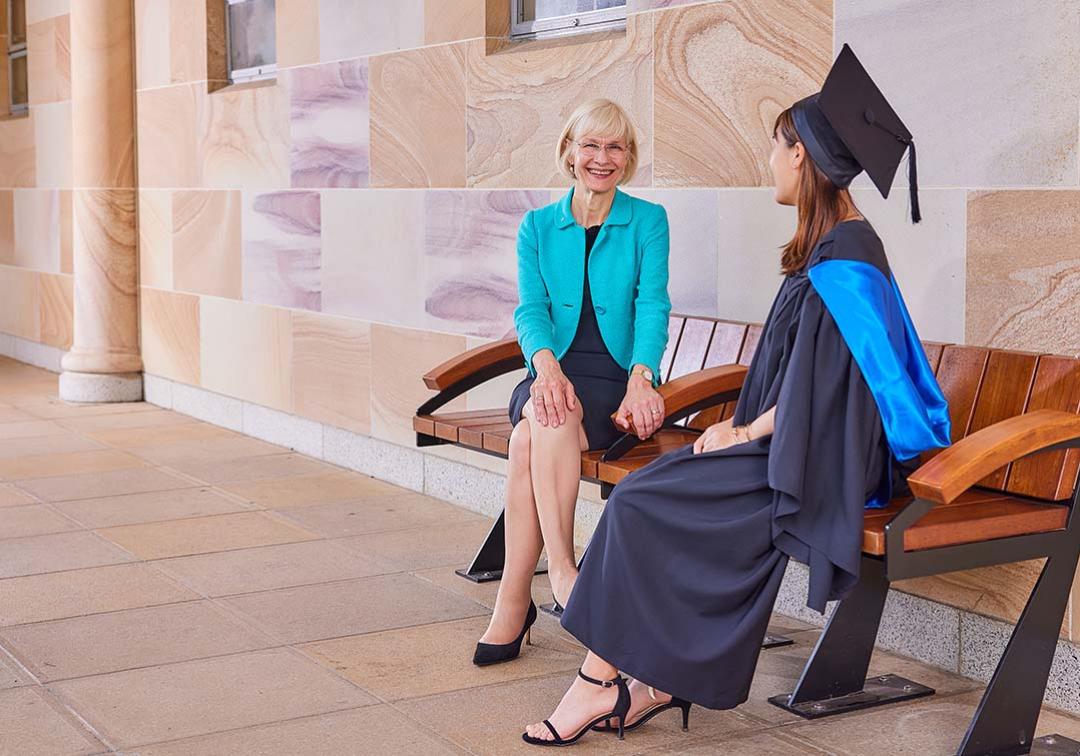
Bachelor of Social Science
Overview
The degree for social change makers. Gain the skills to address the major social challenges of our time, drawing on a strong ethical compass.
In the Bachelor of Social Science, you’ll gain the skills for diverse careers that address pressing social issues – such as poverty and inequality, racial injustice, health and illness, and the social impacts of climate change – at local, national and international levels.
You’ll learn to think critically and beyond borders, drawing from sociology and policy studies through to geography, critical Indigenous studies, political science, international relations and anthropology.
You’ll gain a strong grounding in social justice, social research, and establish new links with community and industry, as well as create a strong foundation in the practice-based skills, values and knowledge needed to address key social problems. Practical and transferrable workforce skills include public policy evaluation, social impact assessment, public advocacy, community organising, community planning and social research.
The Bachelor of Social Science will teach you not only the many layers of the social world, but the sought-after skills you need to change it.
Program highlights
- Develop the skills, values and knowledge that are sought after by employers who want to create change in the world.
- Learn policymaking and advocacy, public communication, cross-cultural awareness, report writing, project management and social research.
- Gain hands-on experience in the real world by undertaking a supervised, yearlong research project.
Majors
Tailor your studies to suit your goals. This program offers these options:
- Development
- Environment and Society
- Health and Social Policy
How you'll learn
Your learning experiences are designed to best suit the learning outcomes of the courses you choose.
- Lectures
- Tutorials
- Overseas study
- Research experience
- Fieldwork
- Workshops
What you'll study
At UQ, degrees are called 'programs' and subjects are called 'courses'. Here's a sample of the courses you could study in this program:
- Society, Challenges and Solutions: Introduction to the Social Sciences
- Political Problems and Public Policy
- Research, Planning and Design
- Introduction to social research
Dual programs
Double your skills and your opportunities with a dual degree. You can study the Bachelor of Social Science as a part of these dual programs:
Career possibilities
Our programs prepare you for your first job and beyond. Depending on which major you choose, here are some of the careers you could be on your way to:
- Aid project officer
- Community development officer
- Community planning and policy adviser
- Environmental policy director
- Social and government researcher
- Ethics adviser
- Academic researcher
- Community health planner
- Environment and sustainability consultant
- Social justice advocate
Events
See all events
9 June
Master of Physiotherapy information webinar
Stories
See all stories
UQ people
Turning her curiosity into a healthcare career
4-minute read

UQ people
Chiemeka’s PhD story: cost-effective treatment for brain disorders
4-minute read
Stories
See all stories
UQ people
Turning her curiosity into a healthcare career
4-minute read

UQ people
How a UQ scholarship helped Paul pursue his dream
5-minute read

UQ people
Chiemeka’s PhD story: cost-effective treatment for brain disorders
4-minute read
Entry requirements
Prerequisites
Prerequisites
Entry score threshold
| ATAR / Rank | IB |
|---|---|
| 75 | 28.25 |
These are the lowest adjusted scores we made an offer to in Semester 1, 2025. Entry scores are based on the most recent Semester 1 intake and are updated in April each year. Meeting the entry score threshold doesn't guarantee admission.
Guarantee your place at UQ: If you meet our guaranteed minimum ATAR you could secure an offer for your preferred program.
English language requirements
IELTS overall 6.5; reading 6; writing 6; speaking 6; listening 6. For other English Language Proficiency Tests and Scores approved for UQ
TOEFL iBT (including Paper Edition) - Overall 87, listening 19, reading 19, writing 21 and speaking 19.
PTE Academic - Overall Score of 64 and 60 in all sub bands.
BE - A minimum overall grade of 4 plus a minimum grade of C in all macro skills.
CES - Overall 176 and 169 in all sub bands.
OET is not accepted.
There are other ways to meet the English language requirements. For some programs, additional conditions apply.
Student visas
International students who are accepted into full-time study in the Bachelor of Social Science are eligible to apply for an Australian student visa (subclass 500).
There are a number of requirements you must satisfy before a visa is granted, including the Genuine Student (GS) requirement.
Entry score range
This table shows the range of entry scores for recent secondary students offered a place in the B Social Science for Semester 1, 2025
| Without adjustments | With adjustments | |
|---|---|---|
| Highest | <5 | <5 |
| Median | <5 | <5 |
| Lowest | <5 | <5 |
Who you'll study with
Here's a snapshot of our student intake for this program in Semester 1, 2025:
| Applicant background | Number of students | Percentage of all students |
|---|---|---|
(A) Higher education study | 9 | 37.5% |
(B) Vocational Education and Training (VET) study | <5 | <5 |
(C) Work and life experience | <5 | <5 |
| (D) Recent secondary education | ||
| <5 | <5 |
| 0 | 0% |
| 0 | 0% |
International students | 10 | 41.7% |
Total | 24 | 100% |
"<5" — The number of students is less than 5.
N/A — Students not accepted in this category.
N/P — Not published. The number is hidden to protect the privacy of students in other cells.
Need help meeting the entry requirements?
Majors
Majors
Tailor your studies to suit your goals. This program offers these options:
Majors
Tailor your studies to suit your goals. This program offers these options:
Fees and Scholarships
Indicative annual fee
Approximate yearly cost of tuition (16 units). Your fees will vary according to your selected courses and study load. Fees are reviewed each year and may increase.
$16,245
2026
Approximate yearly cost of tuition (16 units). Your fees will vary according to your study load. Fees are reviewed each year and may increase.
AUD $45,792
2026
Government assistance
Financial aid
As an international student, you might be eligible for financial aid – either from your home country, or from the Australian Government.
HECS-HELP
Domestic places in the Bachelor of Social Science are Commonwealth supported, as long as you meet all Commonwealth supported place eligibility requirements.
This means the cost of your education is shared between you and the Australian Government. Instead of tuition fees, Commonwealth supported students pay what are called student contribution amounts.
If you have a Commonwealth supported place, you may also be eligible for HECS-HELP. This is an Australian Government loan scheme to assist eligible students with the cost of their student contribution amounts.
Centrelink support
The Australian Government offers a number of income-support payments to eligible Australian university students.
Scholarships
You may be eligible for more than 100 scholarships, including:
How to apply
Applying online
If your senior schooling is from outside Australia, you can submit your application to UQ. Or, if you prefer, you can use an approved UQ agent near you.
The program code for the Bachelor of Social Science is 2506.
How to apply for undergraduate study
If your senior schooling is from Australia
Submit your application to the Queensland Tertiary Admissions Centre if you're an international student who is currently studying:
- Australian Year 12 (in Australia or another country), or
- the International Baccalaureate in Australia.
The QTAC code for the Bachelor of Social Science is 747001.
Applying through QTAC
All domestic applications should be submitted to the Queensland Tertiary Admissions Centre (QTAC).
The QTAC code for the Bachelor of Social Science is 747001.
Important dates
If you’re studying Year 12 in Australia, go to the QTAC website to check the closing date for this program.
If you’re applying to UQ, the closing date for this program is:
- To commence study in semester 2 - May 31 of the year of commencement.
- To commence study in semester 1 - November 30 of the previous year.
Visa processing times vary. Apply and accept your offer as early as you can.
To learn more about UQ dates, including semester start dates, view the Academic Calendar.
Important dates
To check the closing date for this program, go to the QTAC website.
To learn more about UQ dates, including semester start dates, view the Academic Calendar.
Admissions schemes
Applying to university can be both exciting and daunting, which is why we’ve tried to make the process as simple as we can.
We have several schemes in place to improve your chances of getting a place at UQ.
Pathway options
A rank or score doesn’t determine your potential.
If you're not offered a place in your first-choice program – or if you don't meet the entry requirements – you still have a number of options.
Aboriginal and Torres Strait Islander applicants
For support with applying – or if you have any questions about university life – get in touch with our Aboriginal and Torres Strait Islander Studies (ATSIS) Unit.
Explore other programs
Express yourself. And your interest.
They say choosing a degree is hard, which is why we've made it easy. Register your interest and we'll send you everything you need to know about applying to UQ.







